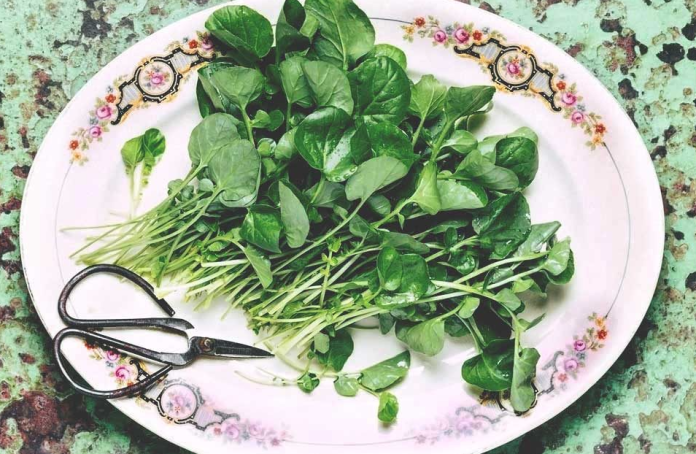Stepping into the spotlight with a vibrant shade of green, watercress has emerged as a potent contender for the esteemed accolade of the world’s healthiest food. This unassuming leafy green is not just a decorative garnish anymore; it has been hailed by experts as an astonishingly nutrient-dense powerhouse that even enhances athletic performance.
Eclipsing its renowned counterpart kale, watercress boasts superior nutrient density and performance-boosting properties. Beyond being a mere addition to a dish, watercress has earned recognition as a true superfood, capable of elevating athlete performance.
B&W Quality Growers proclaims watercress as the pinnacle of nutrient density, a sentiment that resonates with the scientific community. With an impressive roster of over 28 essential vitamins, minerals, and compounds, watercress stands out for its distinctive taste, setting it apart from the muted flavours of many other salad greens.
Earning an astonishing nutrient density score of 100 out of 100 according to the Centres for Disease Control and Prevention, watercress reigns supreme, surpassing even the likes of Chinese cabbage, which scored 91.99. Surprisingly, spinach, often celebrated for its nutritional value, secured the fifth position with a score of 86.43.
Watercress’s remarkable benefits are rooted in its abundant antioxidants and amino acids. These antioxidants act as the body’s guardians against the destructive influence of free radicals, a natural consequence of both rest and intense physical activity. Amino acids, the building blocks of protein, play an essential role in various bodily functions, including digestion, tissue growth, hormone and neurotransmitter production, and maintaining a robust immune system.
The connection between a plant-based diet and an enhanced antioxidant defence system, as highlighted by a study, reinforces the potential of watercress to counter DNA damage from free radicals generated during high-intensity exercise. Adding watercress to your pre-workout regimen could prove instrumental in alleviating post-exercise muscle discomfort while bolstering your immune defences.
An impressive vitamin C content places watercress in a league of its own as an immune-boosting agent. Just 100 grams of this herb boasts enough vitamin C to meet a substantial portion of your daily requirement, surpassing even the renowned vitamin C sources like oranges and lemons.
However, a word of caution is warranted. While watercress offers a multitude of benefits, moderation is key. Consuming more than 100 grams can lead to potential discomfort in the belly, bladder, and kidneys.
In conclusion, watercress has earned its status as a nutrient-dense wonder, offering an array of health benefits that extend beyond its vibrant appearance. Its antioxidant-rich profile, amino acid content, and immune-boosting potential make it a formidable ally in both athletic performance and overall well-being.

![5 Reasons You Should Travel Alone Airplane [image source: chau nguyen/ http://thedevilhatessweatpants.blogspot.com.au ], crowd ink, crowdink, crowdink.com, crowdink.com.au](https://crowdink.com/wp-content/uploads/2016/08/Chau-airplane-218x150.jpg)




























![5 Reasons You Should Travel Alone Airplane [image source: chau nguyen/ http://thedevilhatessweatpants.blogspot.com.au ], crowd ink, crowdink, crowdink.com, crowdink.com.au](https://crowdink.com/wp-content/uploads/2016/08/Chau-airplane-100x70.jpg)


